HALAKHIC
POSITIONS of
RABBI JOSEPH B.
SOLOVEITCHIK
HALAKHIC POSITIONS of RABBI JOSEPH B. SOLOVEITCHIK
VOLUME II
AHARON ZIEGLER

A JASON ARONSON BOOK
ROWMAN & LITTLEFIELD PUBLISHERS, INC.
Published in the United States of America
by Rowman & Littlefield Publishers, Inc.
A wholly owned subsidiary of The Rowman & Littlefield Publishing Group, Inc.
4501 Forbes Boulevard, Suite 200, Lanham, Maryland 20706
www.rowmanlittlefield.com
PO Box 317
Oxford
OX2 9RU, UK
Copyright 2001 by Aharon Ziegler
First Rowman & Littlefield edition 2004
All rights reserved. No part of this publication may be reproduced, stored in a retrieval system, or transmitted in any form or by any means, electronic, mechanical, photocopying, recording, or otherwise, without the prior permission of the publisher.
British Library Cataloguing in Publication Information Available
Library of Congress Cataloging-in-Publication Data
Ziegler, Aharon, 1932
Halakhic positions of Rabbi Joseph B. Soloveitchik, vol. 2 / Aharon Ziegler.
p. cm.
Includes index.
ISBN: 978-0-7657-6178-1
1. Soloveitchik, Joseph DovContributions in Jewish law. 2. Jewish law.
3. JudaismCustoms and practices. 4. JudaismLiturgy. 5. PrayerJudaism.
I. Title.
BM755.S593Z54 2001
296.185dc21
97-27111
Printed in the United States of America
 The paper used in this publication meets the minimum requirements of American National Standard for Information SciencesPermanence of Paper for Printed Library Materials, ANSI/NISO Z39.48-1992.
The paper used in this publication meets the minimum requirements of American National Standard for Information SciencesPermanence of Paper for Printed Library Materials, ANSI/NISO Z39.48-1992.
This book is dedicated to the memory of my
revered father-in-law,
Mordechai (Max) Lewko, AH,
a man dedicated to his family, to Torah, and to
Eretz Yisrael
and to the memory of my beloved sister,
Rose Ammer (Mase), AH,
a woman devoted to her family and beloved by all.
May their memory be a blessing.
CONTENTS
PREFACE
Due to the overwhelming enthusiastic remarks and comments people over the world have sent me since the publication of my first volume, Halakhic Positions of Rabbi Joseph B. Soloveitchik, zt1, I felt encouraged, and even compelled, to pursue my second volume.
The Torah of the Rav was enormous and endless. From merely one of his shiurim numerous halakhic articles can be written. I have selected those that I thought were timely, relevant, and, primarily, unique. My sources for these articles are from my own personal notes, from the voluminous notebooks of Rabbi Yosef Adler, shiurim given by Rabbi Herschel Schacter in which he regularly quotes Rav Soloveitchik, and from the huge tape library of Milton Nordlicht.
I hope, that Bezrat Hashem, I will have the zchut of furthering these studies and producing many more volumes to come.
Aharon Ziegler
Part I
Rosh Chodesh, Yom Tov, and Holidays
1
Taanit Esther Mukdam
The Mechaber in Shulchan Oruch (Orach Chaim 686:2) states the Halakha of fasting, as a Taanit Tzibbur, on the thirteenth of Adar. Although it is called Taanit Esther, the fast was not established because Esther fasted on that day, but because the Jews of Shushan assembled for the purpose of defending their lives (Esther 8:1112). Notwithstanding the fact that there is no mention of anyone else fasting on that day, Chazal surmised that the entire Jewish community must indeed have fasted, based on Moshe Rabbeinu having fasted the day he prepared for battle with Amalek (Mishne Berurah, note 2).
When Purim falls on Sunday, there were two prevailing opinions during the period of the rishonim as to whether the fast should be observed on Friday or on Thursday. (For details of these differing views see Magen Avot of the Meiri.) Our universal custom is to fast on the Thursday preceding Purim. However, according to Rav Chaim Soloveitchik, this established minhag is only in the category of a safeka doubtful level, but not a certainty.
Consequently, his grandson, Rav Joseph B. Soloveitchik, felt uncomfortable getting an aliyah to the Torah on such a Thursday at Mincha. If indeed the observance of the Taanit should be on Friday, then the Thursday Mincha Torah reading is not halakhically sanctioned, and thus, the possibility of a Beracha Levatala existed. It is interesting to note that the Mishne Berurah also mentions that in this instance, in the event one was not able to observe the fast on Thursday, he is permitted to fast on Friday, although ordinarily we do not fast on Erev Shabbat.
2
Hallel on Rosh Chodesh
Our Prophets ordained that six Psalms of Hallel be recited on special days that commemorate times of national deliverance from danger and on each festival. The Shulchan Oruch (Orach Chaim 422:2) rules that Hallel is also to be recited on Rosh Chodesh, but bedillug, with the omission of two paragraphsthe beginning of Psalms 115, and of Psalms 116).
The Talmud (Taanit 28b) questions the origin of this practice. It states that when Rav came to Bavel (Babylonia) from Eretz Yisrael as the new Rosh Yeshiva and Rosh Kehilla, he heard the community reciting Hallel on Rosh Chodesh. This was the first time he had heard of such a practice and he was quite bewildered, to the point that he was going to stop them from continuing. He knew that the Psalms of Hallel are reserved for special occasions and that Rosh Chodesh did not warrant such a requirement. However, when he heard them omitting the two paragraphs he then realized that their recitation was not due to an ordained din, but rather a minhag that they are following.
Rav Soloveitchik deduced from this Gemara that whenever Hallel is recited, bedillug, it indicates that the recitation is not Meikar HaDin, but merely a minhag. Tosfot questions whether a beracha can be recited on the basis of a minhag, and Rabbeinu Tam deduces from this passage that a beracha can definitely be recited, for had the people of Bavel recited Hallel without a beracha, Rav would have noted the difference right at the beginning and would not have been so bewildered until the dillug. However, what is not explained in the Talmud, or in the Rishonim, is why such a minhag began in the first place, since Rosh Chodesh does not fit the criteria for warranting the recitation of Hallel.
According to HaRav Soloveitchik, the concept of Rosh Chodesh shows the authority the Torah had vested in the rabbis. The mitzvah of HaChodesh HaZeh Lachem (Shemot 12:2) relegates the awesome responsibility of establishing the time for observing each festival to the domain of the rabbis. Bet Din declares the time of Rosh Chodesh and on that basis the Festivals will be determined. The Festival beracha therefore is formulated as Baruch Ata Ha-Shem Mekadesh Yisrael Vehazmanim (Yisrael), referring to Bet Din, whereas on Shabbat the beracha is Baruch Ata Ha-Shem Mekadesh Hashabbatnot Yisrael
Next page

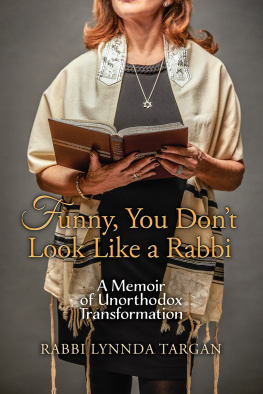
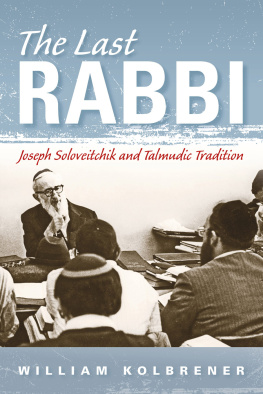
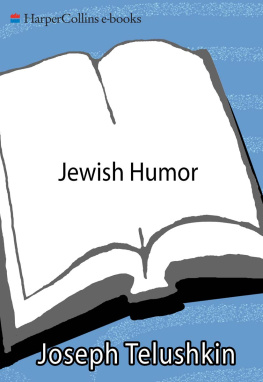
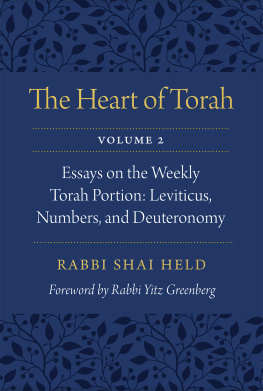
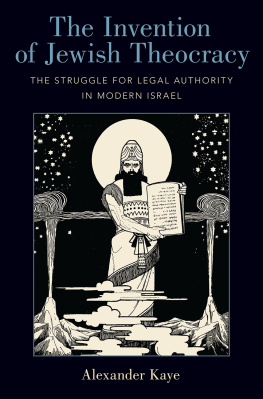


 The paper used in this publication meets the minimum requirements of American National Standard for Information SciencesPermanence of Paper for Printed Library Materials, ANSI/NISO Z39.48-1992.
The paper used in this publication meets the minimum requirements of American National Standard for Information SciencesPermanence of Paper for Printed Library Materials, ANSI/NISO Z39.48-1992.